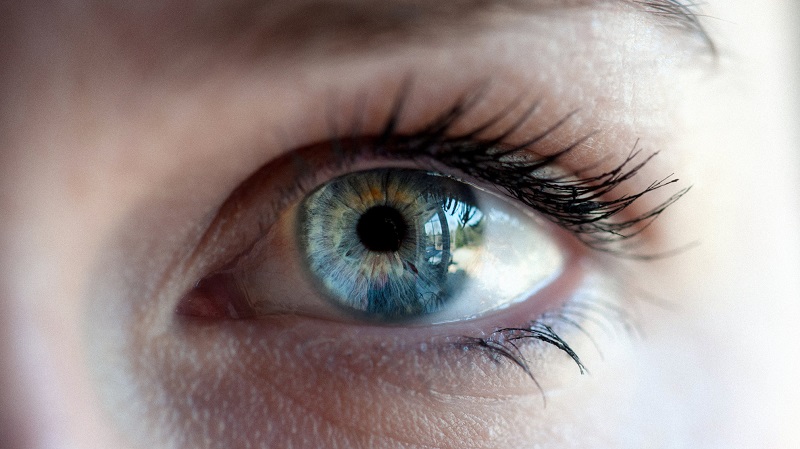Important facts to know abouteyecataracts
Sincecataractscan occur at any age, it is extremely important to take care of the eyes and visit an ophthalmologist every year to identify possible problems as early as possible.
The word “cataract” is for sure associated with you with ophthalmologists and elderly people.This is not surprising, because, according to statistics,cataractsdevelop in 50% of all elderly people over 80 years of age.
But this is not all.Did you know that thefirstsymptoms ofcataract appear in 40 years, but notice them much later, whenvisiondeteriorates?Therefore, if you are approaching 40 years or have already passed this milestone, we advise you to continue reading to learn more about cataracts.
Perhaps you are already beginning to notice the first symptoms of cataract, but do not pay enough attention to your eyesight.We will tell you everything you need to know about cataracts.

1. Cataracts do not form in the eyes
The first thing you need to know about cataracts is thatit does not form before our eyes.Most people think that this disease is associated with a film on the surface of the eye.
In fact,cataracts form inside the eyeball and vision is distorted after the lens squeezes the eyes, the proteins are destroyed, leading to its clouding.This is a completely painless processthat remains unnoticed for several months or even years, until you need an operation.
2.Ageis not the only risk factor
Another thing you need to know about cataracts is thatit does not always come from age. Despite the fact that the probability of its occurrence is higher in older people, cataracts can strike everyone.
Especially the probability of occurrence of a cataract at people which are:
- Transferred ophthalmologic operations
- Suffer from glaucoma
- Often exposed to sunlight without sunglasses
There are also cases of congenital cataract- some babies are already born with this disease.This may be caused by infection or problems in the development of the fetus, resulting from a lack of nutrients during pregnancy.
You may also like to read: According to a new study it to work sitting or standing does not matter
3. Symptoms of cataract
Although cataract progresses very slowly, some of its symptoms can be seen even in the early stages of the disease.These are the symptoms …
- Blurred or blurry vision
- Loss of peripheral vision (i.e. difficulty with focusing eyes on objects in front of the eyes)
- Problems with color discrimination
- Loss of vision in the dark or in low light
- Double vision
- Sharp changes in visual acuity

4. Cataract can affect only one eye
Another thing you need to know about cataracts -it can affect not both eyes, but only one.Although bilateral cataract is the most common, in some people it occurs only in one eye.
This occurs as a result of trauma or exposure to the eye.Therefore, it isalways recommended to consult an ophthalmologist if you have suffered an eye injury.
It is likely that at first you will not feel any discomfort.Moreover, it may take several years before your state of health worsens.
5. Cataract affects your vision differently
It is generally accepted that cataracts mean deterioration of vision.Nevertheless,there are cases when in the cataract the vision remains unchanged, but the patients experience photophobia.In other cases, patients can see well in natural light, but their vision worsens at night or at dusk.
Therefore, it is important to know that cataracts do not affect different people equally.
6. Cataract does not always require an operation
In the early stages of the development of the disease,cataract can be cured without surgery.You can spend years without needing ophthalmic surgery.
It is important to discuss the circumstances of the treatment with the doctor and assess how much the cataract affects your daily life.
Based on this, you will be able to make the right decision.It may well be that all you need are some medications and regular visits to the ophthalmologist.
7. The operation to eliminate cataracts is very popular and completely safe
It is quite natural to feel fear or panic if you were told that you have cataract and the best way out is to undergo an operation.If this is your case, rest assured:this is one of the most common and safe procedures.
Currently, the chances of successful cataract recovery as a result of the operation are 96%, which makes it one of the safest operations in the history of medicine.All that is needed is a local anesthetic and a small incision.Even stitches are not needed.
The surgeon will remove the cornea of the eye, cleanse it of the effects of cataract and insert an implant.The whole process lasts 15-20 minutes, and in a few hours you can go home.
After the operation, wear protective goggles and avoid weight and effort for several weeks.
You will see that vision will be better immediately the next day after the operation, and in a month it will fully recover.You will see better than ever.
8. The best way to prevent cataracts is to visit an ophthalmologist
It is necessary to visit an ophthalmologist at least once a year to prevent the occurrence of cataracts and other eye diseases.
During a consultation with a specialist, you can point out to him the symptoms you noticed, which we mentioned above. It will tell you if this is just a passing problem, or you really have cataracts, and will help to avoid the progression of this disease.




